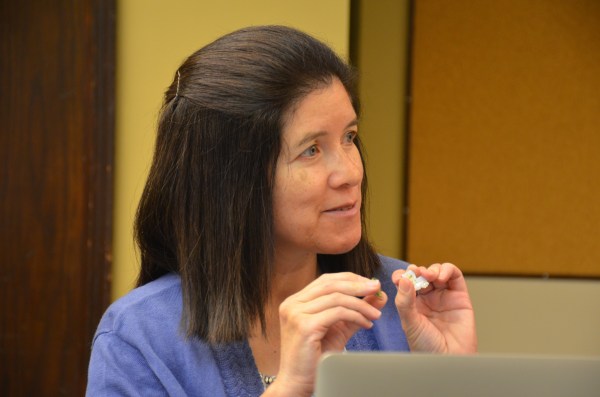HDS Lab member Sayamindu Dasgupta and his coauthor Benjamin Mako Hill received an Honorable Mention Award at CHI for their paper, “Scratch Community Blocks: Supporting Children as Data Scientists.” The award recognizes the top five percent of submissions to the SIGCHI 2017 conference. In the paper, they present a system that allows children in the online community around Scratch, a visual block-based programming language, to access, analyze, and visualize data about their own learning and social participation. Read more in the paper and Dr. Dasgupta’s blog post.
Lab member Nan-Chen Chen recently passed her general exams and advanced to candidacy. She now begins work on her dissertation, which will focus on visual analytics for understanding changes in complex systems. Her committee is chaired by Cecilia Aragon, and includes Gary Hsieh of HCDE, Andy Ko of the iSchool, and Been Kim of CSE.
Lab members Meg Drouhard and Anissa Tanweer presented a paper co-authored with Brittany Fiore-Gartland at the CSCW 2017 Hackathon Workshop: Hacking and Making at Time Bound Events. They offered a preliminary typology of hackathon events that they’ve observed across various field sites while studying the practice and culture of data science. The typology identifies a number of dimensions for distinguishing different forms of hackathon-style events, and draws comparisons between what they dub “communal”, “contributive”, and “catalytic” hackathons. The paper can accessed here.
Also at CSCW, lab member Sarah Evans presented a paper coauthored with Katie Davis, Abigail Evans, Julie Ann Campbell, David P. Randall, Kodlee Yin and Cecilia Aragon. “More Than Peer Production: Fanfiction Communities as Sites of Distributed Mentoring” presents findings from a nine-month ethnographic study of fanfiction communities. Evans et al. find that members of these communities spontaneously mentor each other in open forums, and that this mentoring builds upon previous interactions in a way that is distinct from traditional forms of mentoring and is made possible by the affordances of networked publics. This current paper extends and develops the theory of distributed mentoring developed in the researchers’ previous work.




